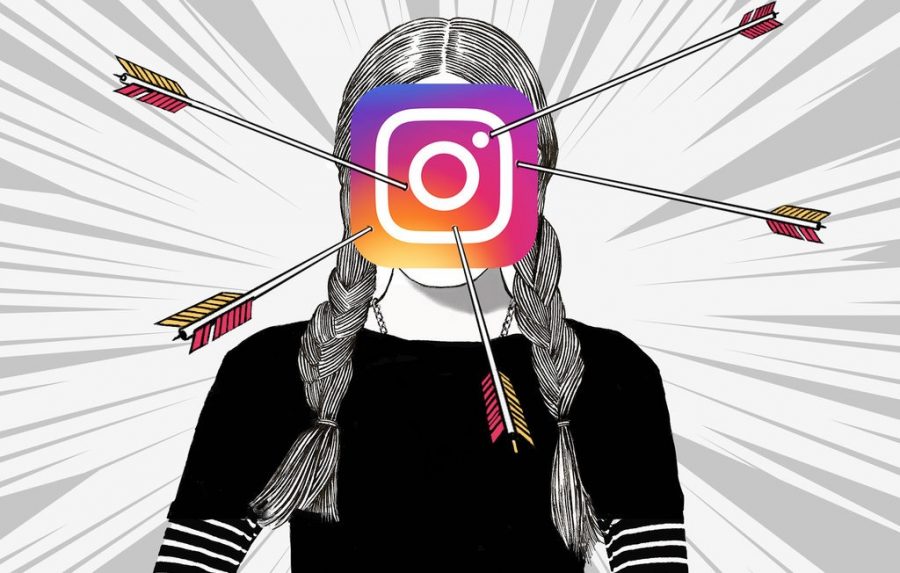Yeah…You’re Canceled
December 14, 2020
Cancel culture has taken hold of the american celebrity, with energized movements that hold public figures to greater accountability. Since people look up to these actors, singers, comedians, and producers, they naturally have a responsibility to be role models for the public. Different movements, such as the #MeToo movement has sparked conversations on important social issues in both Hollywood and in people’s homes all around the world. As people have become more aware of these issues, troubling information about different celebrities, such as Bill Crosby and Michael Jackson, have come to light, leading them to become “canceled.” To be canceled, one’s actions must be broadcasted to the public, garnering the media’s attention to deny them that attention. Often, after someone is canceled, they lose both their cultural cachet and their livelihoods.
Obviously, for something as important as sexual abuse, those who have engaged in these acts have a greater chance of receiving reprocutions. Holding these public figures accountable and empowering people to share their stories is a powerful step in the right direction to participants of movements such as the #MeToo movement. However, as cancel culture becomes more popular, people can cancel celebrities who have made trivial mistakes or have already learned from their past and apologized.
In 2020 alone, many celebrities have been canceled, some for more problematic reasons than others. The public criticized singer Lana Del Rey because her songs “don’t empower women.” In an Instagram post on May 21, 2020, she stated that she wasn’t “glamorizing abuse,” but that she was only being “honest and optimistic about the challenging relationships that [she’s] had.” She went on naming a few other artists, including Doja Cat, Ariana Grande, and Nicki Minaj, and explained how they also have songs about being sexy or cheating. But unlike her, they weren’t being canceled for it. This excuse didn’t get her far. Backlash quickly ensued, and people called her “racist,” since the artists she named were mostly colored singers.
Other celebrities were also criticized for their past actions, poor word choice, or things they were falsely accused of doing. TV Host Jimmy Fallon was canceled when a clip from Saturday Night Live in 2000 resurfaced. Fallon was impersonating Chris Rock in blackface. He apologized in an episode of The Tonight Show, drawing mixed reactions. Actress Vanessa Hudgens also took some heat in March 2020 when she went on Instagram to express her feelings about COVID-19. In a video, she said, “Even if everybody gets it, like yeah, people are going to die, which is terrible… but inevitable?” Quickly, she regretted her words and apologized, but not everyone was convinced of her apology. Even singer Demi Lovato was briefly canceled when fans found a Twitter account that made fun of Selena Gomez, even though there was no evidence that it was actually Lovato behind the account.
In a world where people look up to public figures, cancel culture is appearing in everyday life too, not just with celebrities. In September 2020, Business Professor Greg Patton at the University of Southern California came under fire for using Chinese words that sounded like an English racial slur. He was demonstrating how to say a common Chinese filler word—” nèi ge”—meaning “that” or “um,” in an attempt to be more inclusive to his international students. However, students accused him of saying the N-word. Even though “nèi ge” is an entirely accurate expression that Chinese people use every day (and has absolutely nothing to do with the racial slur), USC still decided to replace him with another professor for that class. He expressed his regret, saying, “I had not realized this negativity previously, or I would have replaced the example as we now have.” He was still replaced.
Because celebrities are in such a public light where their every movement can be seen by people all around the world, it is encouraged by many that they must be extra careful of what they say and do. Every single action is amplified and put under a spotlight for all to see. This, combined with people’s nature to immediately judge something they only see on social media, creates an unhealthy setting where public figures must spend their days walking on eggshells in fear of losing their jobs and getting “cancelled”.
